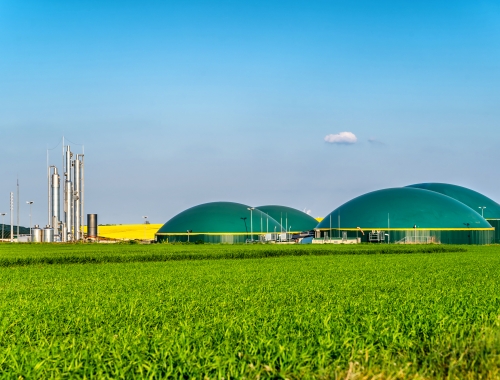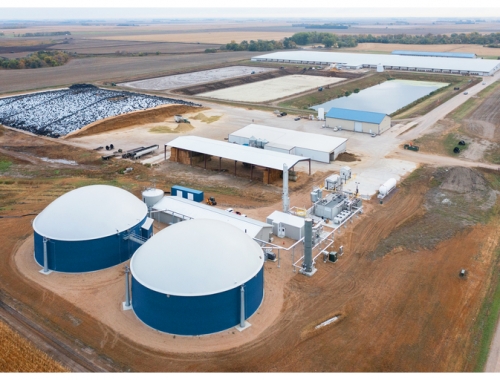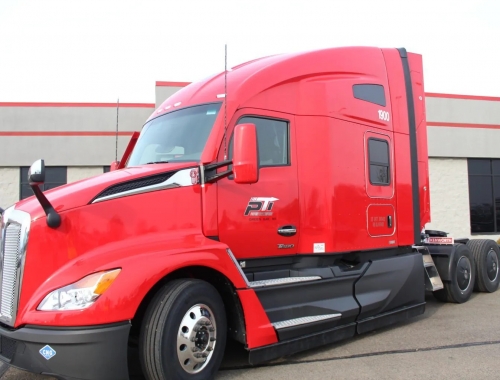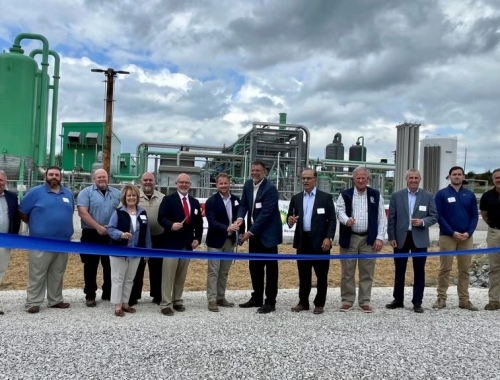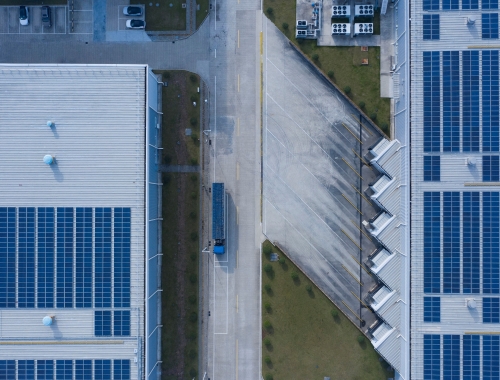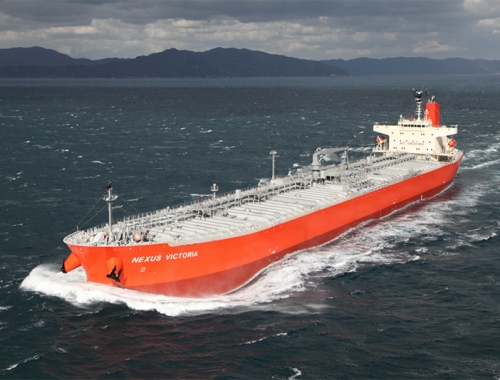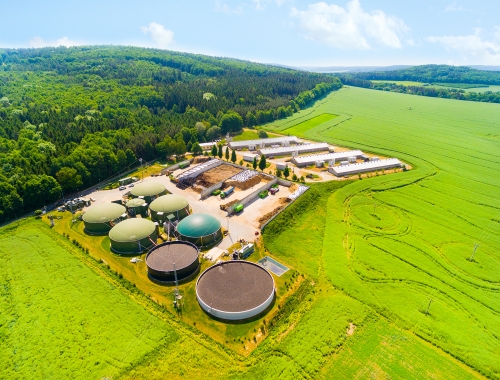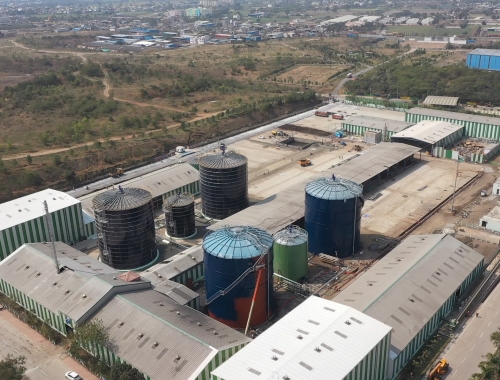Equitable Origin: setting an ESG standard for energy development
SUMMARY
Jennifer Turner, Energy Director at Equitable Origin, discusses with Gas Pathways how the organisation’s EO100 certification programme strives to present a full picture of the environmental, social and governance impact that energy development is having in a given region, using hundreds of defined performance targets.
By Mike WeberQ: For those unfamiliar with your certification system for natural gas, briefly explain how it works?
A: Our mission is to partner with business, communities and government to better support responsible energy development.
We are unique because our framework is intended to get as close as we can to having a full picture of the impacts a company is having in a given region. This means our framework has to consider many metrics. We don't just focus on emissions, we don't just focus on a single well or a single facility.
We have hundreds of defined performance targets that fit under our five main guiding principles. All companies that gain certification in our framework must score at least 70% in each principle (e.g. community engagement and human rights). So it is not easy to certify with our framework.
Independent assessors visit sites to verify performance standards. In doing so, they provide a direct line of sight between impacts, in real time, and what is being reported. Our approach connects high level disclosures with independent auditing and evaluation - from the ground up.
Last but not least, we have a major focus on a required commitment to continuous improvement - so participating companies are required to follow through on customised plans that are part of our certification process. This is a requirement to recertify.
We have also teamed up with Methane Intelligence (MiQ), to offer joint certification that includes their fast growing and widely trusted methane emissions certification standard.
Q: What actions are you taking now to expand certification across the natural gas industry?
A: Our early success in Canada was very important. We have incredible partners who truly stepped up to prove that this approach works. That is an ongoing success story of global significance.
About 12% of the natural gas production in North America carries our EO100 Certification. We are in the process of building on that now. While we have already had success in the Marcellus and Haynesville shale in the USA, we are working on expanding into other areas of the USA - especially the Permian, Eagle Ford, and Woodford formations.
You can expect to see more announcements regarding our joint certification with MiQ (Methane Intelligence) in the near future, as we work together in Canada and the USA.
Q: The Inflation Reduction Act (IRA) has been touted as a game-changer for low carbon energy sources. How has the legislation supported the growth of the certified natural gas industry?
A: The IRA is legacy in the making. One key provision of the IRA is the MERP, or Methane Emissions Reduction Plan, which provides tremendous incentive for methane emissions reduction. We are already seeing a lot of effort to minimise leaks and replace equipment, in an effort to avoid the increasing cost of excessive emissions.
At the same time, the public is seeing that our current understanding of emissions has been unclear and incomplete. The gap between observed and reported emissions is driving demand for better reporting standards, as well as verification.
Above all, there is an overarching and increasing demand for all this to be done in a way that is more accessible and understandable. I believe this is supercharging the demand for certified natural gas.
Q: For some producers, cost both in terms of cash and human resources poses a barrier to embracing certification of natural gas. How are you working to break down this barrier?
A: As a registered charity, we have structured our approach to make our framework as accessible as possible. We don't exist to make profit, we simply exist to help ensure more better practices become more competitive. This mission requires our frameworks to be accessible. We would work to ensure this is the case for any producer who is interested in participating.
Our initial self-assessment phase involves a minimal one-time cost that allows a producer to see how closely their current operations align our required performance targets. We actively support this process for no additional charge, providing clarification as required against hundreds of defined performance targets. Many of our producers are surprised to see how much of the standard they already meet - for them, it is a matter of organising their existing data.
Independent assessors competitively bid for the assessment work required to verify actual performance against the targets required for certification. Producers oversee this process themselves.
Our framework has enabled smaller producers to partake in our program, attain continuous improvement, and - oftentimes - improve their own resiliency through creating stronger supporting processes. As a common example, many smaller and mid sized producers are surprised to see how much they are vulnerable due to reliance on the knowledge of sole team members.
Some of the strongest promoters of our EO-100 certification are producers that attest to the value of "taking stock" of their existing practices and doing the work required to achieve certification. The process of achieving certification under our comprehensive framework often generates significant value, long before any certificates are sold at a premium.
Q: Certified gas has drawn some criticism over the lack of unified standards. What steps are you taking to bolster credibility for the certified natural gas market?
A: Criticism will drive calls for greater transparency and clarification. Inevitable scrutiny will drive performance. This process has value and we welcome it. In turn, it will enable the creation of a much larger, trusted market for certified gas. Before we get there, we need to have a process that supports a shared understanding of what it is - and what it is not.
We approach work as a form of public service. We try to conduct ourselves in a way that upholds high standards. We embrace transparency and inevitable imperfection, because this leads to continuous improvement. We publish our certification reports on our website for everyone to see. We take care not to oversell what this is, especially when it is too early to know exactly how high premiums will be.
At the end of the day, the most valuable critical resource is trust. It is the tightest market of all - the market for certified gas wouldn't likely exist without it.
Q: What is the biggest myth out there about certified natural gas and what would you say to anyone sceptical about the green credentials of responsibly sourced gas?
A: Healthy scepticism will become a necessary part of the proving ground for a strong, resilient market. It's too early to dismiss the value of certified gas – we are just beginning to see what these new frameworks can do. The next few years will bring much more certainty.
It's true that there are a significant number of people on two different endpoints. Some people dismiss all certified gas as greenwashing. Other people dismiss it as "WOKE" politics. Both these groups highlight the need for trust over virtue-signalling.
The push towards certified gas is a response to the need for transparent and unbiased reporting on a producer’s commitments to its stakeholders. That certainly isn't going anywhere. In the near future, I trust that the value of certified gas will speak for itself.
Q: Certified gas is still a relatively nascent industry. Why is it important for producers to be early adopters of certifying their natural gas?
Certified gas has gotten to the point where it isn't going anywhere. This means the new conversation is simply about risk versus early adopter advantage.
There is general agreement that more stakeholders are going to demand independent verification of ESG related performance. It is fair to assume that, for many, this scrutiny will not be limited to emissions.

